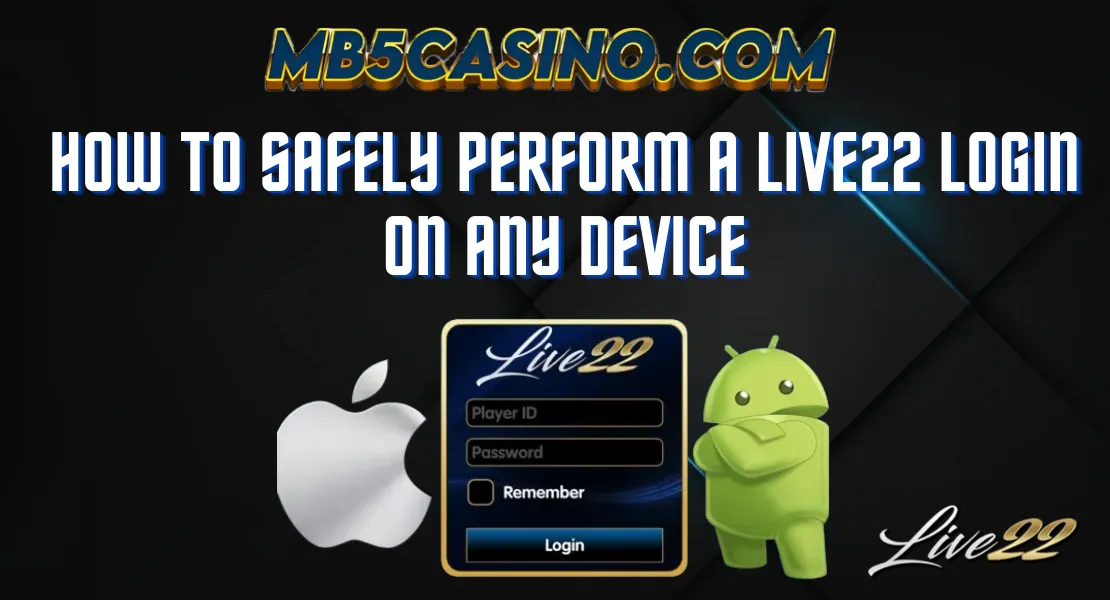The Live22 login is your gateway to a world of exciting games, bonuses, and entertainment. Whether you're a seasoned player or a newcomer, logging into your Live22 account is a daily ritual. However, in an age of increasing cyber threats, it is crucial to understand how to perform this seemingly simple action with the utmost security. This comprehensive guide will walk you through the best practices for a safe Live22 login on any device—be it a smartphone, tablet, or PC. By following these steps, you can protect your personal information and ensure that your entire Live22 mobile experience remains secure and enjoyable. Your safety is paramount in all Live22 related activities.
The Foundation of Security: The Official Platform
The single most important factor in a secure Live22 login is ensuring you are on the official and legitimate platform. Cybercriminals frequently create fake websites and applications that mimic the look and feel of the real Live22 site. These fraudulent portals are designed to trick you into entering your login credentials, which are then stolen and used to compromise your Live22 account. Before you enter your username and password, always verify the URL in your browser's address bar. The official website will have a clean, professional-looking domain name without any misspellings, extra words, or random characters. For example, a fake site might be "https://www.google.com/search?q=Live22-pro.com" or "Live22-official-app.net." The official site will have a standard domain like "Live22.com" or a variation that is widely recognized and trusted. In the same vein, if you are using a dedicated app, ensure that you performed the Live22 download from the official website or a trusted app store. A login attempt on a counterfeit app will lead to your credentials being compromised. This foundational security practice is the first line of defense against phishing scams and unauthorized access.
Protecting Your Login Credentials
Your username and password are the keys to your Live22 account. Protecting them is your responsibility and is a core part of good security hygiene. You should use a strong and unique password, avoiding common words, sequences of numbers (like "123456"), or personal information (like your birthdate or name). A strong password should be a combination of uppercase and lowercase letters, numbers, and symbols. It is highly recommended that you use a unique password for your Live22 login that you do not use for any other online account, such as your email or social media. For those who find it difficult to remember complex, unique passwords, a password manager is an excellent tool. It can generate strong passwords for you and store them securely, automatically filling in your credentials when you are on a verified site or app. This eliminates the risk of typing errors and ensures that you are using a strong password every time you log in. If Live22 offers Two-Factor Authentication (2FA), you should enable it immediately. 2FA adds an extra layer of security by requiring a second form of verification in addition to your password. This could be a code sent to your phone via SMS, a code from an authenticator app, or a biometric scan (like a fingerprint or face ID). Even if a hacker manages to get your password, they will be unable to access your Live22 account without the second verification factor. This is a crucial step for any security-conscious user engaging in a Live22 related activity.
Safe Live22 Login on Public and Shared Devices
Logging into your Live22 account on a public or shared device, such as a computer at a library or an internet café, poses a significant risk. These devices may be infected with spyware or keyloggers that can capture your login information. You should avoid public Wi-Fi networks, as they are often unsecured and can be easily intercepted by cybercriminals. It is a best practice to avoid performing a Live22 login or any other sensitive transaction while connected to a public network. Instead, use your mobile data connection, which is generally more secure. When using a shared computer, always use the browser's incognito or private mode. This prevents the browser from saving your history, cookies, and, most importantly, your login credentials. Finally, never leave your Live22 account logged in on a public or shared device. Always click the "Log Out" button to ensure that the next user cannot access your account.
The Role of Your Device and Software
The security of your Live22 mobile login also depends on the state of your device and its software. You must keep your device's operating system (iOS or Android) and your browser always up to date. Software updates often include critical security patches that protect against new vulnerabilities. It is also a good practice to use a reputable antivirus program on your device to detect and remove malicious software, including keyloggers and spyware, before they can do any harm. This provides an additional layer of protection, particularly if you've ever been unsure about a certain Live22 download. Finally, be aware of app permissions. When you install the Live22 app, be mindful of the permissions it requests. A legitimate app will only ask for necessary permissions (e.g., internet access). Be cautious if it requests access to your contacts, SMS messages, or other sensitive information that is not relevant to its function.
Conclusion: A Secure Login for a Better Experience
A secure Live22 login is not just about protecting your username and password; it's about adopting a holistic approach to your digital security. By using the official platform, creating strong and unique passwords, enabling two-factor authentication, and being cautious on public networks, you can significantly reduce the risk of your Live22 account being compromised. This vigilance is a small price to pay for the peace of mind that comes with a secure gaming experience. By following this guide, you can confidently log in to Live22 and enjoy a safe and uninterrupted gaming journey.








































